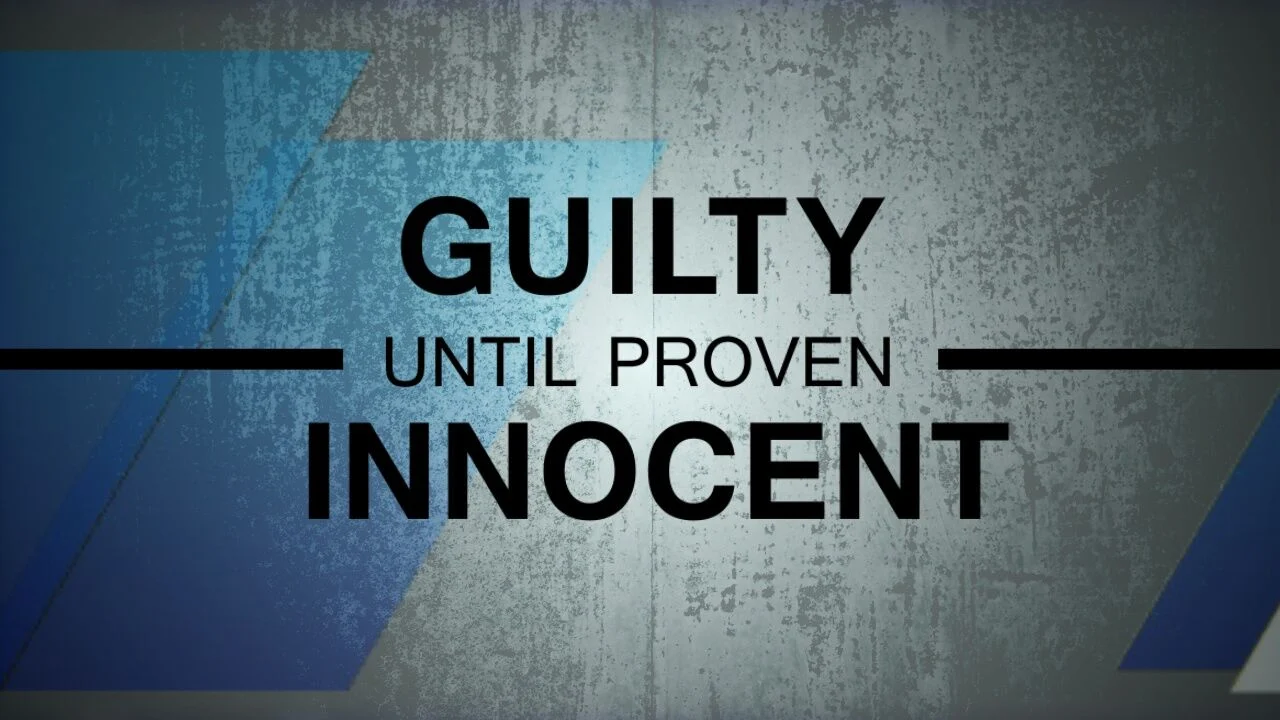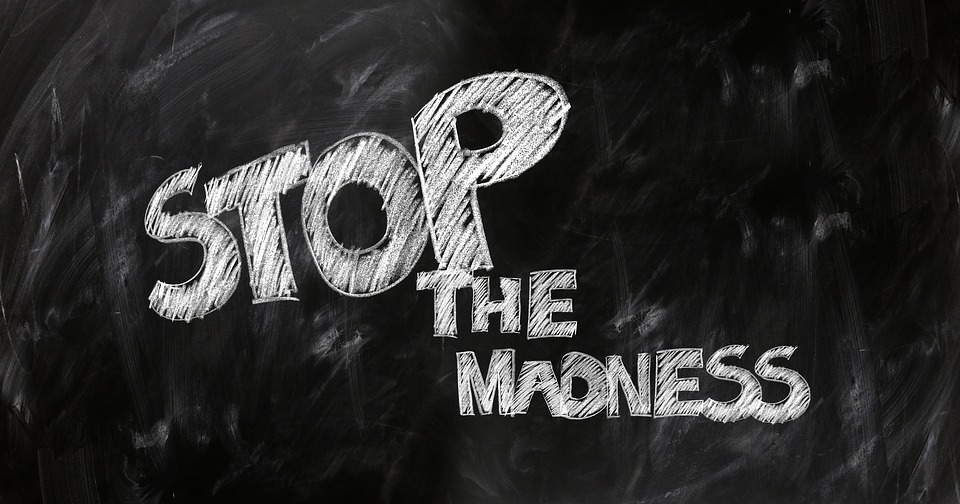Wrongful convictions are a grave injustice that can have devastating consequences for individuals and society as a whole. The realization that innocent individuals can be convicted of crimes they did not commit is a sobering reminder of the flaws within our justice system. Innocence lost not only robs individuals of their freedom and tarnishes their lives but also erodes public trust in the legal system. This article explores the prevalence of wrongful convictions, the factors that contribute to them, and the urgent need for reform. By shedding light on this issue, we hope to raise awareness and promote meaningful changes to ensure that justice is truly served.
Introduction: The importance of addressing wrongful convictions
Understanding the gravity of wrongful convictions
Imagine being stuck in a nightmare, framed for a crime you didn’t commit, and facing years behind bars for something you didn’t do. It sounds like the plot of a gripping thriller, but unfortunately, it’s a horrifying reality for many innocent individuals who fall victim to wrongful convictions. Wrongful convictions not only destroy lives, but they also erode the public’s trust in the justice system. Acknowledging and addressing this issue is crucial for preserving justice and ensuring the innocent are protected.
The significance of preserving innocence in the justice system
Presumption of innocence is the bedrock of any fair and just legal system. It is the notion that every defendant is innocent until proven guilty beyond a reasonable doubt. However, when wrongful convictions occur, this fundamental principle is violated, leaving innocent individuals robbed of their freedom and the chance to live a normal life. Preserving innocence within the justice system is not only a moral imperative, but it also ensures that trust in the system remains intact.
The prevalence of wrongful convictions: Statistics and case studies
Quantifying the frequency of wrongful convictions
While it may be unsettling, the prevalence of wrongful convictions cannot be ignored. Studies and data from various sources shed light on the sobering reality. Research indicates that anywhere from 2% to 10% of all convictions in the United States may be wrongful. This means that thousands of innocent people may be languishing behind bars, their lives forever altered by a flawed system.
Examining high-profile cases of wrongful convictions
High-profile cases, such as those that capture media attention, can provide a window into the depths of the problem of wrongful convictions. From the infamous Central Park Five case to the exoneration of individuals like Amanda Knox or Ryan Ferguson, these cases highlight the fallibility of the justice system and the devastating consequences that can result from mistakes, misconduct, or negligence.
Factors contributing to wrongful convictions: Misidentification, false confessions, and unreliable evidence
The impact of eyewitness misidentification
Eyewitness misidentification is one of the leading causes of wrongful convictions. Surprisingly, people’s memories can be highly unreliable, and factors like stress, cross-racial identification, or suggestive police procedures can significantly impact a witness’s ability to accurately identify a suspect. Relying solely on eyewitness testimony without proper safeguards can lead to tragic miscarriages of justice.
The prevalence and dangers of false confessions
False confessions may seem counterintuitive, but they occur more frequently than one might imagine. Coerced or involuntary confessions, often resulting from lengthy interrogations, psychological pressure, or even a desire for personal gain, can lead innocent individuals to admit to crimes they did not commit. The repercussions of false confessions reverberate throughout the justice system, posing a serious threat to justice and truth.
Evaluating the reliability of forensic evidence
Forensic evidence, once seen as infallible, has come under scrutiny in recent years. Advances in technology and new scientific understanding have revealed flaws in previous methods. Instances of flawed or exaggerated forensic evidence contribute to wrongful convictions, as juries and judges often place undue trust in the findings without realizing the potential for error.
Flaws in the investigation process: Confirmation bias, tunnel vision, and inadequate defense
The influence of confirmation bias on investigations
Confirmation bias, the tendency to interpret information in a way that confirms existing beliefs, can seriously hinder investigations. When investigators fixate on a suspect early on and disregard evidence that may contradict their theory, innocent individuals may be wrongfully accused and convicted. Overcoming confirmation bias is essential to ensuring a fair and impartial investigation.
The dangers of tunnel vision and its impact on innocence
Tunnel vision, a narrow focus on a single suspect or theory, can blind investigators to alternative possibilities. Once tunnel vision takes hold, crucial evidence that could prove someone’s innocence may go unnoticed or ignored. Uncovering the truth requires investigators to remain open-minded and consider all possibilities.
Inadequate defense and its contribution to wrongful convictions
Inadequate legal representation can be detrimental to the pursuit of justice. Overworked and under-resourced defense attorneys may struggle to mount a robust defense, leaving their clients vulnerable to wrongful convictions. Lack of access to experts, failure to challenge the prosecution’s case effectively, and failure to investigate alternative suspects or evidence can all contribute to unfair outcomes.
Innocence lost is a tragic consequence of a justice system in need of reform. By understanding the prevalence of wrongful convictions, the contributing factors, and the flaws in the investigation process, we can work towards a more just and equitable system that truly protects the innocent. The path to justice starts with acknowledging the failings and working together to prevent further injustices from occurring.
The role of bias in the justice system: Racial, socioeconomic, and confirmation bias
Examining racial bias in the justice system
When it comes to the justice system, we like to think that everyone is treated equally. Unfortunately, that’s not always the case. Racial bias can rear its ugly head at every stage of the legal process, from arrest to trial. Studies have shown that people of color are more likely to be stopped, searched, and arrested, and they often receive harsher sentences compared to their white counterparts. It’s crucial that we acknowledge and address these disparities to ensure a truly fair justice system for all.
The impact of socioeconomic factors on fairness in the legal process
Money talks, and sometimes it screams in the justice system. Those from lower socioeconomic backgrounds often face hurdles that can compromise the fairness of their trial. Limited access to quality legal representation, inability to post bail, and lack of resources to mount a strong defense can all contribute to wrongful convictions. We must recognize and rectify these inequalities to prevent socioeconomic status from determining one’s fate in the justice system.
The dangers of confirmation bias and its effects on innocence
Confirmation bias: the human tendency to cherry-pick information that aligns with our preexisting beliefs. In the realm of criminal justice, this can be downright dangerous. When investigators, prosecutors, or jurors latch onto a theory and then seek evidence to support it, they may ignore or downplay information that points in another direction. Innocent individuals can easily become victims of confirmation bias, with their guilt presumed and evidence dismissed. To safeguard against this, we must promote a culture of open-mindedness and constant reevaluation of the evidence.
The consequences of wrongful convictions: Lost years, shattered lives, and the impact on society
The personal toll on the wrongfully convicted
Wrongfully convicted individuals experience a level of loss that is hard to comprehend. They lose precious years of their lives, separated from loved ones and robbed of opportunities. The psychological and emotional trauma inflicted by the justice system can leave scars that never fully heal. Rebuilding their lives after exoneration is a daunting task, and the impacts can be long-lasting.
The broader societal implications of wrongful convictions
Wrongful convictions don’t just harm the individuals directly involved; they also erode public trust in the justice system. When innocents are imprisoned, the real perpetrators remain free to commit more crimes. Moreover, the financial cost is staggering, with taxpayers footing the bill for legal battles, compensations, and the maintenance of a flawed system. The consequences of wrongful convictions extend far beyond the individuals wronged, making it an issue that concerns us all.
Reforming the justice system: Strategies to prevent and rectify wrongful convictions
Improving investigative techniques and practices
It’s time to embrace advancements in forensic science and technology to ensure accurate investigations. From DNA testing to improved evidence collection and analysis, investing in better tools and training can greatly minimize the chance of wrongful convictions. Police departments and forensic labs must be held to the highest standards to maintain integrity and reliability in their work.
Enhancing defense capabilities and access to resources
Every accused individual deserves a robust defense. Providing adequate funding for public defenders, ensuring access to expert witnesses, and enabling comprehensive investigations is essential for safeguarding the rights of the accused. By leveling the playing field, we can prevent innocent individuals from being steamrolled by an unfair system.
The importance of post-conviction DNA testing and other advancements
DNA testing has proven to be a game-changer, exonerating many wrongfully convicted individuals. The availability of post-conviction testing, coupled with the preservation of DNA evidence, is crucial in uncovering the truth and setting the innocent free. We should embrace other advancements, such as enhanced forensic techniques and the use of body cameras, to ensure that justice is served accurately and fairly.
Ensuring justice for the innocent – a collective responsibility
The ongoing fight for justice and the role of society
The fight for justice doesn’t end with individual cases; it requires a collective effort from all of us. We must challenge biases, demand accountability, and push for systemic reforms to prevent innocent lives from being irreparably damaged by a flawed justice system. By actively engaging in conversations and supporting organizations dedicated to this cause, we can make a meaningful difference.
The importance of learning from past mistakes to prevent future wrongful convictions
In the pursuit of justice, acknowledging past mistakes is essential. We must learn from wrongful convictions, examining the flaws in our system that allowed them to happen. By implementing the necessary reforms and continuously evaluating and updating our practices, we can move closer to a justice system that truly upholds the principles of fairness, accuracy, and the presumption of innocence.
Addressing the issue of wrongful convictions is not only a matter of rectifying past mistakes but also a collective responsibility to uphold the principles of justice and protect the innocent. By recognizing the prevalence of wrongful convictions, understanding the factors that contribute to them, and implementing necessary reforms, we can strive towards a more fair and equitable justice system. It is crucial that we learn from past mistakes, support the wrongfully convicted, and work together to prevent future injustices. Only by doing so can we ensure that innocence is preserved, lives are not shattered, and justice truly prevails.
FAQ
1. How common are wrongful convictions?
Wrongful convictions are more common than most people realize. While it is challenging to determine the exact number, studies and statistics indicate that a significant number of individuals have been wrongfully convicted. These cases span across different jurisdictions and involve various types of crimes.
2. What are some factors that contribute to wrongful convictions?
Wrongful convictions can occur due to a combination of factors. Some common contributors include eyewitness misidentification, false confessions, unreliable forensic evidence, confirmation bias in investigations, tunnel vision, and inadequate defense. These factors, either individually or in tandem, can lead to the conviction of innocent individuals.
3. Can bias impact the occurrence of wrongful convictions?
Yes, bias can play a significant role in wrongful convictions. Racial bias, socioeconomic bias, and confirmation bias within the justice system can influence decision-making, investigations, and legal proceedings. Addressing and mitigating bias is crucial in preventing and rectifying wrongful convictions.
4. What can be done to prevent and rectify wrongful convictions?
Preventing and rectifying wrongful convictions requires a comprehensive approach. Some strategies include implementing improved investigative techniques, enhancing defense capabilities and access to resources, promoting post-conviction DNA testing and advancements in forensic science, and raising awareness and education about the causes and consequences of wrongful convictions. Additionally, ongoing efforts to address bias and promote fairness within the justice system are essential.





